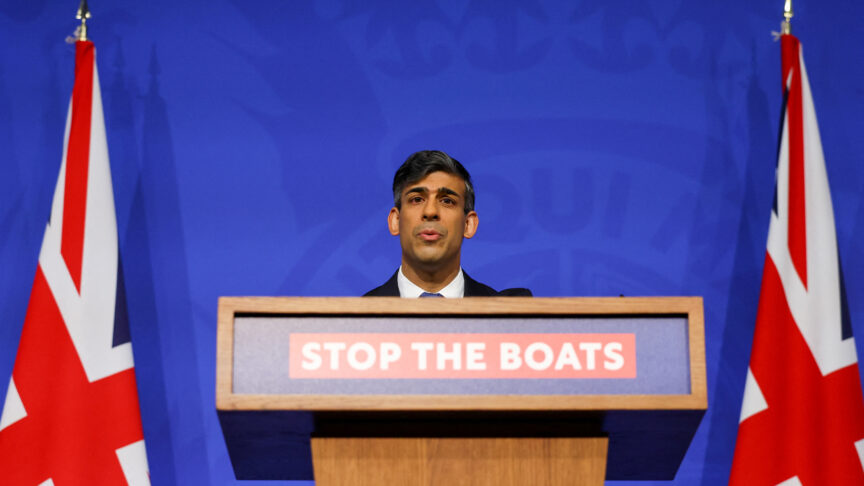A new partnership in support of international law
Obama’s election offers the opportunity for the EU and the US to come together in pledging to fight terrorism within the framework of fundamental human rights
 For much of the world, the abiding legacy of the Bush administration will be the damage it has done to the reputation of the United States as a country that cares about international law.
For much of the world, the abiding legacy of the Bush administration will be the damage it has done to the reputation of the United States as a country that cares about international law.
To build a successful foreign policy, it will be essential for President Obama to start restoring America’s image by repudiating the worst excesses of the “war on terror”, such as Guantanamo Bay, the CIA’s “black sites” and the torture of terrorist suspects. Europe has a huge interest in this process, both because it is a necessary precondition to restoring the transatlantic alliance as a force for promoting the international rule of law, and because it holds the prospect of more effective cooperation against the continuing threat of terrorism that both Europe and America face.
During the election campaign, Obama frequently expressed his desire to restore America’s international reputation and promised to close Guantanamo and ban torture. More generally, his endorsement of multilateralism in foreign policy and his personal style of patient and inclusive policymaking suggest an outlook on security and international law that is much closer to the European centre of gravity than either President Bush or the defeated contender Senator John McCain. It would be wrong to assume that as president Obama will adopt exactly the same positions on international law as EU states, or that he will quickly move to implement all the policies that Europeans might hope for. But there should be enough common ground to re-establish a principled and effective partnership.
Obama’s first priority in this area will be to offer a credible programme for closing the Guantanamo detention centre, and his officials will look to Europe for help. At issue is a subset of the prisoners who the Americans might be willing to release, but who cannot be returned to their country of origin because they would face torture or persecution. The most prominent of these are 17 Uighurs from Western China who were captured in Afghanistan in the months after September 11, and who have been cleared of any involvement in terrorism against the United States. Altogether there may be up to 50 prisoners who the new administration places in this category. State Department officials have for some time been trying to find countries to take these prisoners (five Uighurs were settled in Albania in 2006) but European countries have refused to take them. Now, European countries, especially those with immigrant communities into which the prisoners could integrate, will be under pressure to take some of these men; they are more likely to do so if the United States agrees to admit some of these detainees itself, as it has so far refused to do.
Even when Guantanamo is closed, Europeans may find to their surprise that the category of “enemy combatant” has not disappeared from America’s lexicon. Obama does not talk of a “war on terror” but his administration is unlikely to treat terrorism simply as a criminal problem. There may be some Guantanamo prisoners who cannot be easily prosecuted before civilian courts or military courts-martial (Obama has promised to shut down the discredited system of military tribunals) but whom the administration does not wish immediately to release. They are likely to continue being held without charge, at least for some time, as long as the American courts allow the administration to do so. Rather than decrying such a development, Europeans should take the opportunity to push the United States to elaborate a new set of principles on counter-terrorism and human rights that both Europe and America could sign up to.
A public declaration of principles would be a striking way of demonstrating a joint commitment to confront the threat of terrorism within a framework of fundamental human rights. While divisions of policy are likely to continue (with the United States concerned more with a threat from outside its borders, and Europeans more with internal radicalisation), these can be transcended by an overarching set of essential rules based on the values that both partners in the transatlantic relationship share. This declaration could re-establish Europe and the United States together as a standard-setter in the contemporary challenge of fighting new forms of terrorism within the governing principles of international law. This approach would be consistent with an increasing consensus that fundamental human rights apply in war and peace alike—and the 60th anniversary of the Geneva Conventions would make 2009 a particularly propitious year to reaffirm humanitarian principles in this way.
A declaration of these principles could include the following: no one can be held for an extended period without charge except in situations of national emergency or armed conflict; no one should be held for an extended period without the possibility of independent review if there is uncertainty about the grounds for their detention; no prisoner should be held without his name and place of detention being publicly confirmed; no prisoner should be subjected to torture or cruel and inhuman treatment; no one should be transferred to any country where they face a real risk of being tortured; no one should be transferred to another country if they will be detained without due process. The declaration could be wrapped together as a reaffirmation of the need to confront terrorism within the framework of the rule of law and essential values of humanity.
Beyond this charter, Europe should look for small positive steps rather than making far-reaching demands and expecting them to be acted on immediately. An important issue here will be the International Criminal Court. Barack Obama has said that he would consult thoroughly with military commanders and examine the track record of the Court before reaching a decision on whether the United States should become a party to the ICC. Most Europeans rightly believe that American participation in the Court would contribute enormously to establishing the ICC’s impartiality as an institution that has jurisdiction over the powerful as well as the weak states of the world. But they should recognize that Obama is unlikely to propose that the Senate ratify the Court’s statute unless he has a good chance of winning its consent, and that the American military also remains wary.
In the short term Obama may take steps to bring America closer to the Court, like participating as an observer in an important working group on whether the ICC should have jurisdiction over aggression. While influential members of his administration would certainly support full membership, this is more likely to happen in a second term when Obama has established his foreign policy credibility with American voters and the ICC has a longer record of successful operation.
The European Council on Foreign Relations does not take collective positions. ECFR publications only represent the views of their individual authors.


